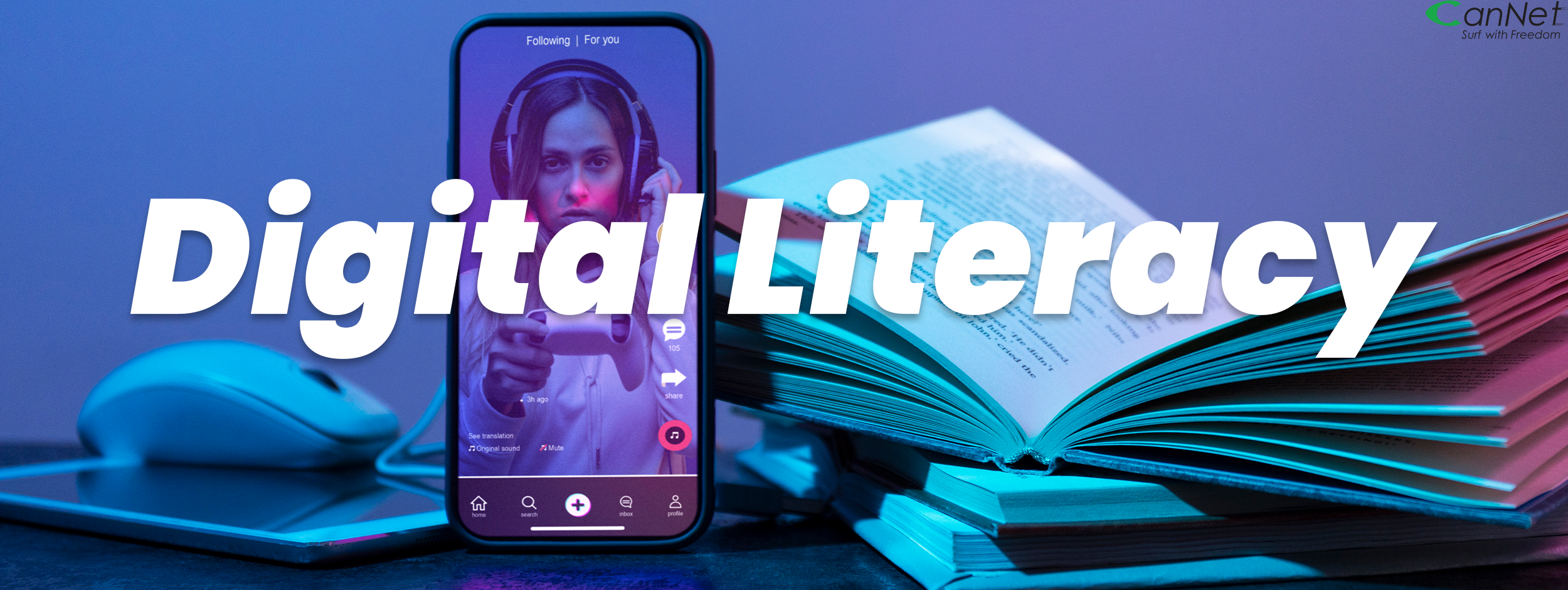The Imperative of Digital Literacy in Canada
In an era where technology
is woven into the fabric of daily life, digital literacy has emerged as an
essential skill set, transcending traditional literacy to encompass the ability
to navigate, evaluate, and create information using a range of digital
technologies. For Canada, a country known for its innovation and commitment to
education, fostering digital literacy among its citizens is not just
important—it is crucial. Here’s why.
Economic Competitiveness
Canada's economy is increasingly digital. From e-commerce to digital banking, and online services to tech startups, the digital economy is a driving force. To maintain and enhance its competitiveness on the global stage, Canada needs a workforce proficient in digital skills. Digital literacy enables individuals to participate in and contribute to the digital economy, enhancing productivity and innovation. It also helps in attracting and retaining high-tech industries and jobs, crucial for economic growth and stability.
Access to Services and Information
In today's digital age, access to services and information is largely mediated through technology. Government services, health care, education, and even everyday tasks like banking and shopping are increasingly digital. Digital literacy ensures that all Canadians can access these essential services efficiently and equitably. It empowers individuals to navigate online platforms, understand digital information, and make informed decisions, thereby enhancing their quality of life and well-being. Digital literacy is also important in distinguishing scams from actual important information you receive on the internet. Read all about phishing scams and how to avoid them in our blog article here.
Educational Equity
Digital literacy is foundational for educational success in the 21st century. As educational institutions incorporate more technology into their curricula, students must be digitally literate to fully engage and succeed. This is especially critical in bridging the digital divide, ensuring that students from all backgrounds have equal opportunities to develop essential skills. By promoting digital literacy, Canada can foster an inclusive education system that prepares all students for future challenges and opportunities.
Civic Participation and Democracy
In a democratic society,
informed and engaged citizens are crucial. Digital literacy enhances civic
participation by enabling individuals to access information, engage in online
discourse, and participate in digital forms of activism and governance. It
helps citizens critically evaluate online content, recognize misinformation,
and contribute meaningfully to democratic processes. In an age of digital
misinformation, these skills are vital for the health of Canada's democracy.
Personal Empowerment and Inclusion
Digital literacy is a powerful tool for personal empowerment. It enables individuals to connect with others, pursue lifelong learning, and access employment opportunities. For marginalized groups, including seniors, low-income individuals, and those in remote communities, digital literacy can bridge gaps and foster greater social inclusion. It helps reduce social and economic inequalities, ensuring that everyone can benefit from the opportunities presented by the digital world.
Adaptation to Technological Change
The pace of technological change is rapid, and the ability to adapt is essential. Digital literacy equips Canadians with the skills to understand and leverage new technologies, from artificial intelligence to the Internet of Things. It fosters a culture of continuous learning and adaptability, enabling individuals and businesses to thrive in a constantly evolving landscape.
Digital literacy is more
than a technical skill; it is a critical enabler of economic prosperity, social
inclusion, educational equity, democratic engagement, and personal empowerment.
For Canada, investing in digital literacy is investing in the future. It
ensures that all Canadians can participate fully in a digital society,
harnessing the opportunities it presents and overcoming its challenges. As the
world continues to digitize, Canada's commitment to digital literacy will be a
cornerstone of its success and resilience in the 21st century.
From an early
age, today’s students are digital natives. Integrating IPads/tablets in
Kindergarten to third-grade classrooms allows for better technological literacy
going forward. Educators can promote engagement among students and
capture their attention by using this technology as a means of education.
Between CanNet and
its employees, we’re grateful to see all the changes in our environment and
school curriculum and we welcome the next generation into the digital age. We
cherish momentum here, and starting kids off on the right foot will make all
the difference in their journey toward success. We’re grateful to have a
community focused on progress and equity, which seeks to make the world a
better place. Digital Literacy starts with having access to high-speed
broadband internet. Good thing, that we have the most affordable high-speed internet
plans among ISPs in the country. Let’s grow together.

